I know lots of solo female travellers do have concerns about visiting the Middle East.
And understandably so.
Not the most politically stable part or necessarily liberal part of the world, heading here as a single, western female probably isn’t most peoples’ first choice when it comes to solo travel destinations.
But, let me tell you that despite all your initial hesitations, travelling in the Middle East is completely worthwhile and utterly unique.
Chocked full of amazing historical, cultural, natural and religious treasures, this is a part of the world that’s totally worth that extra level of effort and courage to travel, because it will pay off in an instant!
Related Posts
- 10 Bucket List Things To Do in Jordan
- Top 3 Day Jerusalem Itinerary
- Solo Female Travel in Lebanon: Is It Safe?
This page contains affiliate links meaning Big World Small Pockets may receive a small commission on any purchases at no extra cost to you.
#1 Diversity
The first thing to note about travelling in the Middle East is the diversity this part of the world has to offer.
From Iran to Lebanon (and if you count them, from Egypt to Turkey too) the Middle East really is a blanket term that spans a huge range of religions, regions, cultures, cuisines, languages and landscapes.
That’s why any article about travelling in this region as a solo female not only has to be quite broad, but will also have to constantly justify itself – because it goes without saying that the experience of travelling in Baghdad will be quite different to that of travelling in Beirut!
For the record, I’ve personally travelled through Sudan, Egypt, Jordan, Israel, Palestine, Lebanon and Turkey in this part of the world so far.
As such, this article and my experience as a solo female traveller is based on my time in these countries.
I understand this isn’t the whole of the Middle East, and I will update this article as I travel through more countries in the region, but right now I want to be clear from the off about where my experience lies.
#2 Safety
One of the most common concerns when travelling in the Middle East as a solo female is safety, and I get asked if I felt safe in this part of the world a lot.
And my answer is always unequivocally, yes.
So much so in fact, that travelling further afield to Syria, Iraq and Iran (not easy visa-wise for a Brit) is def on my list!
When I say, the Middle East is safe – I mean this within parameters of course.
Due to the diversity and changing nature of the politics and stability of this region, I always suggest checking out the British Foreign Office advice for the latest information regarding the parts of the region you want to visit.
Also pay close attention to regional news and do check social media for other travel bloggers that might be in the area and able to provide information on the ground.
Outside from political safety, knowing a bit of background info about the places you’re going to visit will help in terms of safety too – such as how conservatively you need to dress or when any holidays (religious or state) may fall.
The Middle East Lonely Planet Guidebook can be a useful starting point in this regard.
But of course, this advice applies to all travellers.
When it comes to solo female travel specifically, knowing about whether you’ll need to wear a headscarf or long trousers is important info.
As a usual precaution, I tend to stay in hostels with other travellers in this region where possible – so I can get some tourist-friendly lowdown – and don’t go out after dark by myself until I know what’s safe and what’s not.
Finding out whether Uber or other ride-sharing apps operate in each destination is another good way to stay safe in the Middle East as a solo female traveller and, if you feel happier and safer doing so, then taking a few tours when you first get here, as opposed to straight independent travel until you find your feet, can be a good way to ease into the situation.
Getting a SIM card wherever you travel is another great way to feel safer and keeping touch with others while you’re in the region.
I also wouldn’t dream of travelling to a region like the Middle East without proper coverage and always recommend travel insurance from World Nomads which I’ve used during my time here and across the world.
Alternatively, if you’re looking for travel insurance with Covid-19 cover, then look no further than Safetywing’s great Nomad Insurance policies. These guys will cover you at some seriously great prices, including if you have to quarantine!
READ MORE: 23 Amazing Things to Do in the Middle East
#3 Clothing
So yes, the clothing you’ll need as a solo female traveller in the Middle East seems to be a major point of discussion in much of the prep before arriving in this part of the world!
And, as always, it depends when and where you’re travelling in the region.
Generally speaking however, it’s good to carry a decent amount of loose, long clothing with you either way.
With some high temperatures here, covering up can be advised, even in the more liberal parts, and any mosque you’ll want to visit will require you to cover up too.
Then there’s the hiking you’ll want long leggings for, the cold high mountains you’ll want trousers for and those dusty dirt roads you’ll want a scarf for.
There’s the wide desert expanses (scorching in the day, cold in the night) you’ll want warm clothing for, the windy ancient sites like Petra you’ll want layers for and old cities where you’ll want to look respectful.
This means even if you’re not travelling to strict Orthodox countries like Iran and Sudan (where headscarves are mandatory) having some longer length, covering clothing isn’t a bad idea anywhere in the Middle East.
But there’s also diving in the Red Sea to enjoy, swimming in the Dead Sea, hitting the beach in Tel Aviv and partying in Beirut to consider, so don’t forget your swimwear and your evening dress too!
#4 Behaviour
And just as the Middle East differs massively when it comes to how solo female travellers need to dress, so too does it differ massively when it comes to how you need to behave!
Let’s take drinking alcohol for example – in the liberal parts of countries like Lebanon, Turkey and Israel – it’s no problem at all for women to be seen drinking even by themselves.
Compare this to Iran and Sudan for example where alcohol is illegal and Egypt and Jordan where it’s accessible for tourists, but not so often a behaviour indulged in by locals.
Once again, it’s hard to generalise across the region, so my best advice is to research where you’re going to get as much of an idea as possible of what to expect.
Also recommended is spending your first few days in a destination erring on the conservative side before you pick up a bit more of the vibe!
That said, nowhere in the Middle East did I feel unsafe or uncomfortable travelling as a solo female.
Even if it may not be common for local women to travel alone, I was always greeted with the greatest hospitality and consideration everywhere I went.
The people of the Middle Eastern countries are, without question, some of the friendliest in the world and being open to their cultures, cuisines and customs will undoubtedly get you far and have you making some amazing connections.
READ MORE: Your Perfect 1 Month Middle East Itinerary
#5 Nightlife
Not known for its partying really, the Middle East nevertheless has a few hotspots.
If you want a bit more of a western experience and to relax in a more liberal atmosphere and enjoy a good night out, I’d highly suggest Beirut in Lebanon (particularly the suburbs of Mar Mikhael and Gemmayze) and Tel Aviv in Israel as your best bets.
Both sit on the coastline and offer a great selection of bars, cafes, clubs, restaurants and FUN!
READ MORE: 11 Photos That Will Make You Book a Ticket to the Middle East Today!
#6 Accommodation
Whatever your budget I always find staying in hostels when travelling as a solo female a great idea… and the Middle East is no exception!
That’s because the communal feel of this sort of accommodation is perfect for meeting other travellers who you can chat to, share experiences with and go exploring alongside.
Staying in hostels is key to not finding yourself getting lonely, for saving money on group tours and getting tons of on the ground local info from employees, who are normally friendly, young and fun.
And while you can opt for cheap dorms in many countries across the Middle East (they’re normally single sex FYI), most hostels also offer private rooms if you’re a bit older or want a bit of privacy too.
#7 Other Travellers
I always think meeting other travellers is key to having a great time as a solo female adventurer, especially in places like the Middle East which can be very culturally different to where you come from.
Staying in hostels, as I’ve mentioned is a top and easy way to meet others.
Ditto taking tours, or doing activities like pub crawls or free walking tours.
Finally, checking any travel meetup events, like Couchsurfing etc, can also help bring you into contact with friendly locals and foreigners.
One of the things I liked about travelling in the Middle East most as a solo female was the fact that globetrotting here tends to attract a different sort of crowd.
Backpackers who have just finished school and just want to party tend to be thin on the ground in these parts and, instead, the visitors that do tend to want to explore this region of the world are normally well-travelled and interesting people – ones who’ve seen a lot of the globe already and are interested in the fascinating, turbulent and ever-changing political and cultural nature of the Middle East.
READ MORE: 11 Things You Should Never Travel to the Middle East Without
#8 Communication
As I mentioned earlier in this post, getting a SIM card as you travel the Middle East is a great idea if you’re a solo female wanderer.
Not only will this allow you to stay in touch (and reassure those at home), it will also allow you to order taxis quickly – such as Uber and local alternatives – as well as access Google maps, Google translate and a range of other apps that will help you no end in your adventures.
The annoying thing is that there is no cross-region provider, so if you are travelling across a few countries in the Middle East, you’ll need to get a new SIM in each country.
However this is easy to do and normally quite cheap, with every country in the region I’ve travelled having a tourist SIM package that offered a good amount of data over a short period of time for a good rate.
These are the following providers I used during 2018 (prices correct at time of publication):
- Egypt: Vodafone – 90 LE for 4 GB + 19 LE for SIM
- Jordan: Zain – 17 JD for SIM + 8GB
- Sudan: MTN – 40 SDP for 1GB + SIM
- Lebanon: Touch – 3 USD for SIM + 3GB
- Turkey: Turk Telecom – 120 TL for SIM +15GB
READ MORE: Everything You Need to Know About Flying Saudi Airlines as a Solo Female
#9 Getting Around
It’s great and reassuring to know that getting around the Middle East tends to be pretty easy for travellers.
Of course some countries like Lebanon need to be flown into because their borders are either closed or unstable and cheap airlines, especially from Turkey, can help you do this on a budget.
As always, I suggest checking Skyscanner for the best rates.
Countries such as Jordan, Israel and Turkey can either be flown into (often with budget airlines to / from Europe) or crossed into via land borders from neighbouring nations – just check the particular visa situations to see if these are accessible on borders before you travel overland.
Also be aware to avoid an Israeli stamp in your passport if you’re travelling elsewhere in the region afterwards.
READ MORE: Amman to Jerusalem: Everything You Need to Know About Crossing the Border
In terms of getting around within countries, a combination of taxi, ride-sharing services like Uber or Careem, and public buses work well.
Throughout my time in the region, I used a combination of both and never felt uncomfortable doing so as a solo female.
The driving can be a little crazy of course, but hey, that’s half the fun right?!
Just enter your email address below and I'll send it to you for FREE!
Information will be sent to the email provided above
Mini Travel Guide to the Middle East
4 Key Packing times for the Middle East
#1 Middle East Lonely Planet – A great travel aide to this part of the world with tons of historical info, the Middle East Lonely Planet will help you get the best from your time here.
#2 Arabic Phrasebook – Most people in the Middle East who are connected with tourism industry speak good English, but learning some Arabic never goes a miss, especially if you want to ensure you’re paying the best prices! The Egyptian Arabic Lonely Planet phrasebook is a super affordable example.
#3 Good Camera – The Middle East is one of those jam-packed destinations and travelling here with a good camera will help you preserve the memories. I highly recommend the mirrorless Sony A6000. Light, compact and robust, it’s been perfect for my Middle East travel adventures.
#4 Sun Hat – The Middle East can be hot and dry, really like hot and really dry. When you’re walking around temples, ruins, mosques, churches and other sights you’ll be exposed to the sun for long periods of time, so making sure you pack a sunhat for adequate protection is key. I love this one from Hello Sunshine.
Travel Insurance for the Middle East
World Nomads offers simple and flexible travel insurance. Buy at home or while travelling and claim online from anywhere in the world.
Alternatively, if you’re a long-term traveller, digital nomad or frequent remote worker seeking travel health cover, check out Safetywing’s Nomad Insurance policies.
Best Hostels for Solo Female Travellers
Israel: Abraham Hostel in Tel Aviv and Stay Inn in Jerusalem
Turkey: Cave Hotel Saksagan in Cappadocia and ANZ Guesthouse in Selçuk
Lebanon: Hamra Urban Gardens in Beirut
Jordan: Jordan Towers in Amman and Petra Gate Hostel in Wadi Musa
Egypt: Eka Dolli Guesthouse in Aswan and Dahab Hostel in Cairo
Travel Money
When it comes to paying for things in the Middle East, you want to ensure you’re not being charged overseas transaction fees or getting poor exchange rates when using your card abroad, which is why I always take my Wise card away with me wherever I travel.
The easy way to spend abroad with real exchange rates, no markups and no sneaky transaction fees, you can use your Wise card just like a debit card across the region… and it links easily with Google and Apple pay – sold! here.
PIN IT TO PINTEREST!
So there you have it, my personal lowdown on what to expect when travelling as a solo female in the Middle East.
Have you visited this region alone ladies?
What was your experience like?
Please share the love with any top tips in the comments below…


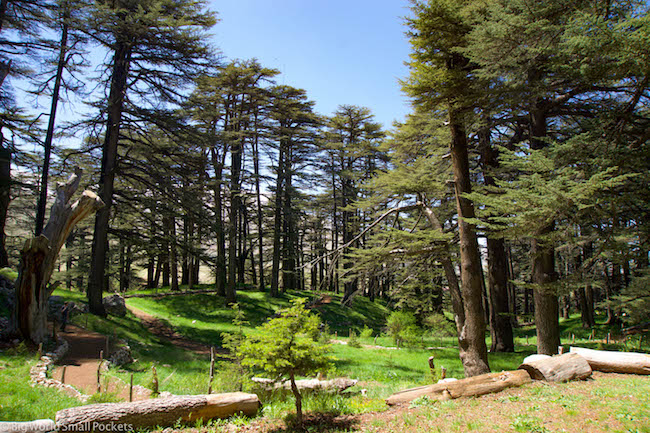

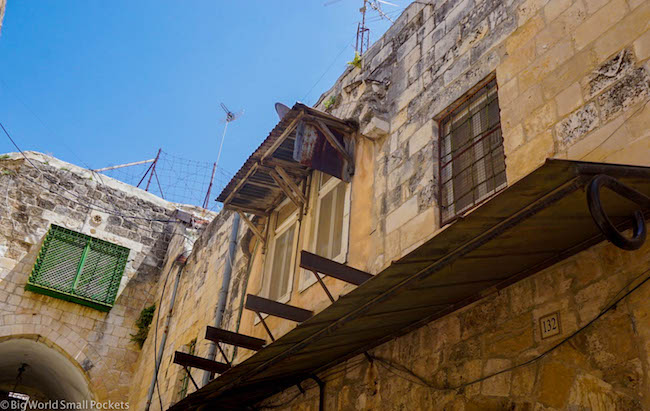
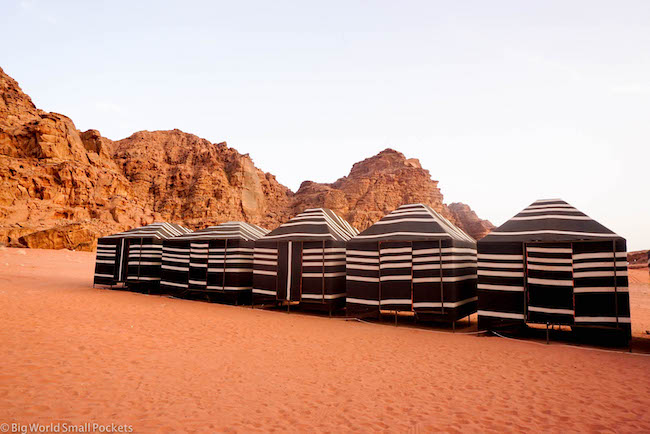
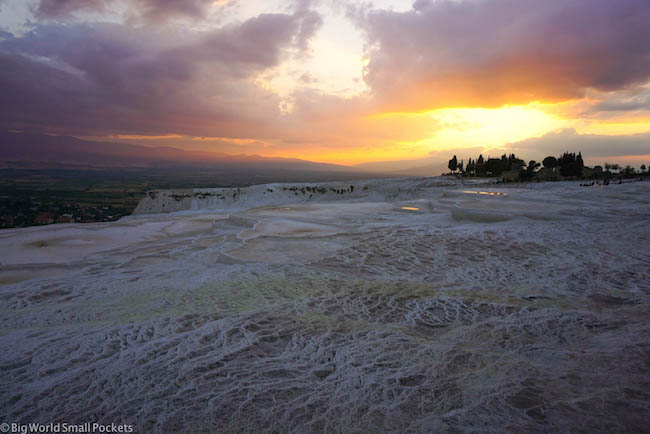
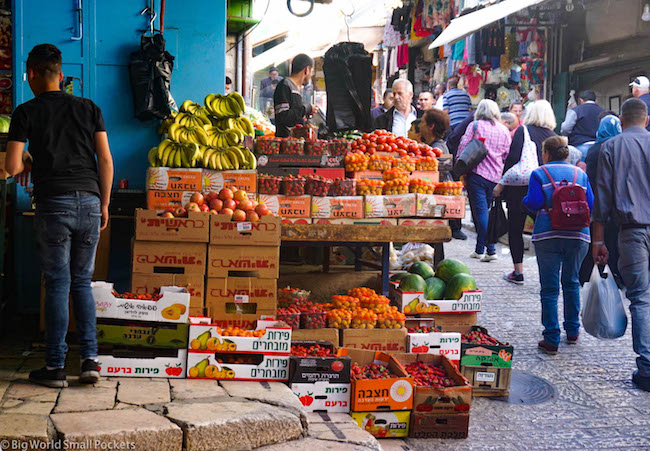
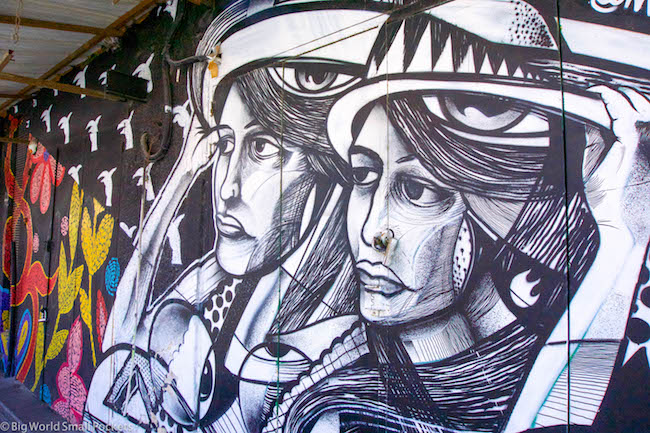

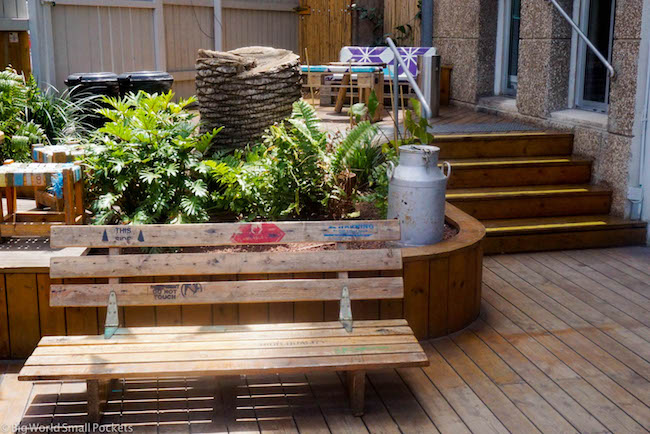
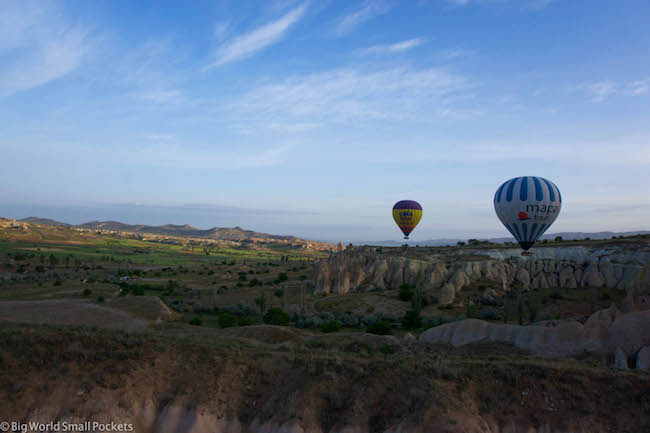
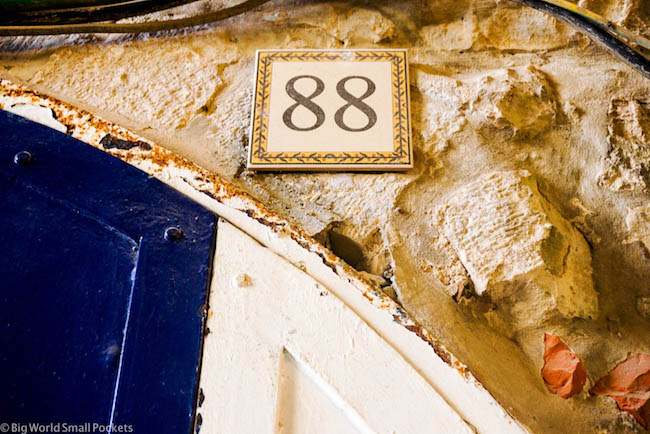
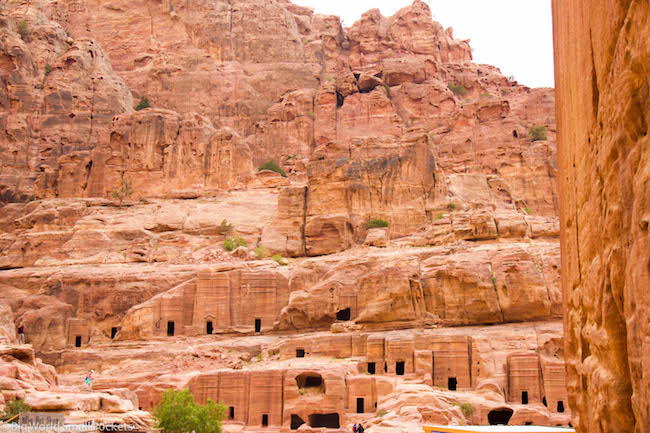
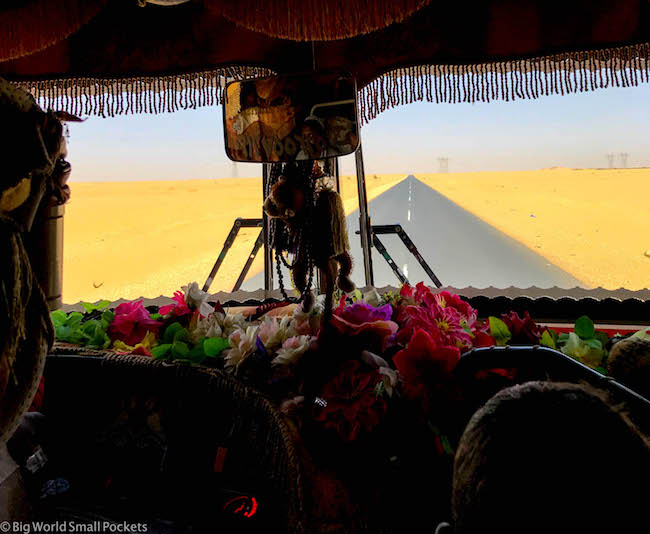

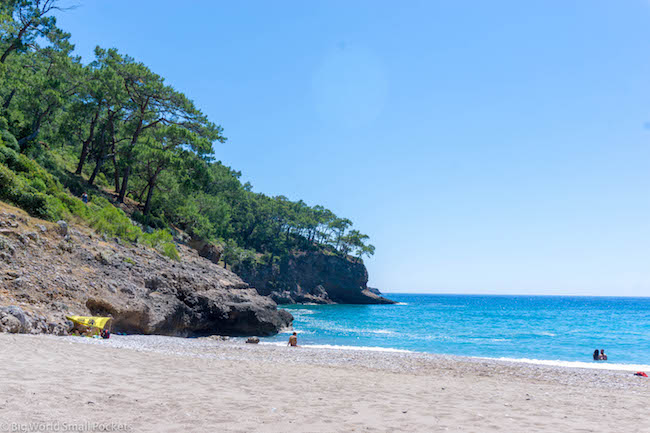

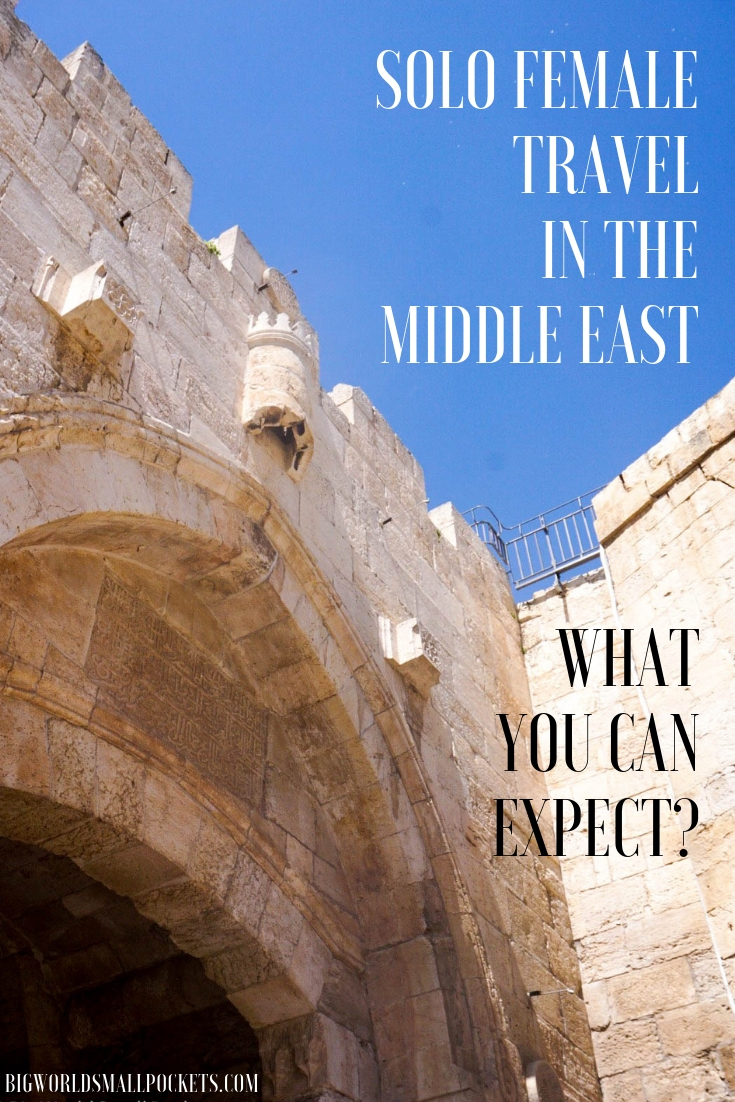
Hey! That’s a great detailed post.
I’ve been solo travelling for a little while now but there are some areas of the world that I find more intimadating… I guess it’s fear the unknown…
I feel more prepared for the Middle East now! It’s on my list! 🙂
Yes yes yes Sarah, get it on your list ASAP. I can’t wait to be back there myself. First though, Africa calls… again! 🙂
You inspire me on my solo travel, Steph! I have been wanting to go to the Middle East for a long time but never went because didn’t feel comfortable doing it on my own. I like how detailed your posts are and will refer to them more than once!
Anya that’s so kind, thank you for these words of encouragement and suggesting that my work might help other solo females find it easier to travel in less well-trodden parts of the world too. This literally makes my heart soar and it all feel worthwhile! I’ll be heading back to the Middle East again this year for sure and look forward to reading about your time there in due course too 🙂
I am really happy I have this information. Thanks!
Thanks David, delighted to hear this 🙂
I traveled to Turkey this summer and i was questioned leaving the US and returning. They said because i was a woman traveling to that country alone. They also came to my house to question me a couple months after my trip. Have you had any trouble like this?
Hi Julia, wow I’m shocked! I never had anybody trouble like this, nor have I heard of anyone else having trouble like this.
Maybe this is just something that happens in the US. They said anytime a single woman travels to the middle east it sends up red flags.
Hi Julia. Sorry, I’m a little confused. Sends up red flags where? What red flags are we talking about? Best, Steph
Great article, Julia. I’ve traveled to Israel solo twice in the past year. Galilee, Jerusalem, and Eilat. LOVED every minute of it. Yeah, I did find myself in some sketchy situations a couple times. I learned one important lesson from this… ALWAYS be suspicious of anyone offering unsolicited advice or help. Better safe than sorry. Hope to be back in the ME later this year. Happy travels to you!
Thanks Cindy. Good advice 🙂
Hi there! I am a fellow female solo traveler, and I’m trying to prepare for an eventual visit to the Middle East in the (hopefully near) future. Your post was so detailed and illuminating, and I’m so grateful for the info! I do have quick question, though. Would you mind extrapolating a bit about why you don’t want an Israeli stamp in your passport if you’re planning on visiting other places in the region? Would you recommend I save Israel for last? (Sorry, that was two questions lol). Thank you in advance!
Hi Isabelle, great to hear from another solo lady thinking of venturing to the Middle East – you’re going to love it. The simple answer regarding the Israeli stamp is that you are then likely to have problems entering Lebanon, Saudi, Iran and other countries in the area (Egypt, Jordan and Turkey are ok). Israel don’t usually stamp because of this, but best to check if you want to visit any of these countries after. Good luck 🙂
Thank you so much for your reply! As well as for your blog. It’s a huge relief to have such a treasure trove of information within reach.
Thanks Isabelle, these are really lovely words to read. So happy you enjoy the blog 🙂
I traveled to Israel in December of 2020. Is it still a problem if I want to go to Lebanon in 2021 or 2022?
Hi Francesca, if you have an Israeli stamp in your passport and you have the same passport to travel to Lebanon, it might be a problem. But honestly, it’s impossible for me to say either way, as there’s no official rule on this. I know some travellers who have got through immigration ok with Israeli stamps and others who have been stopped. It will also depend on where your passport has been issued. Sorry I can’t help further, but wishing you the best of luck. Steph 🙂
Unavailability of the same network service provider across regions is one thing that should change soon. Buying a new sim card every time you arrive at a new country can be a pain.
It sure can Anukrati, but needs must! Happy travels, Steph 🙂